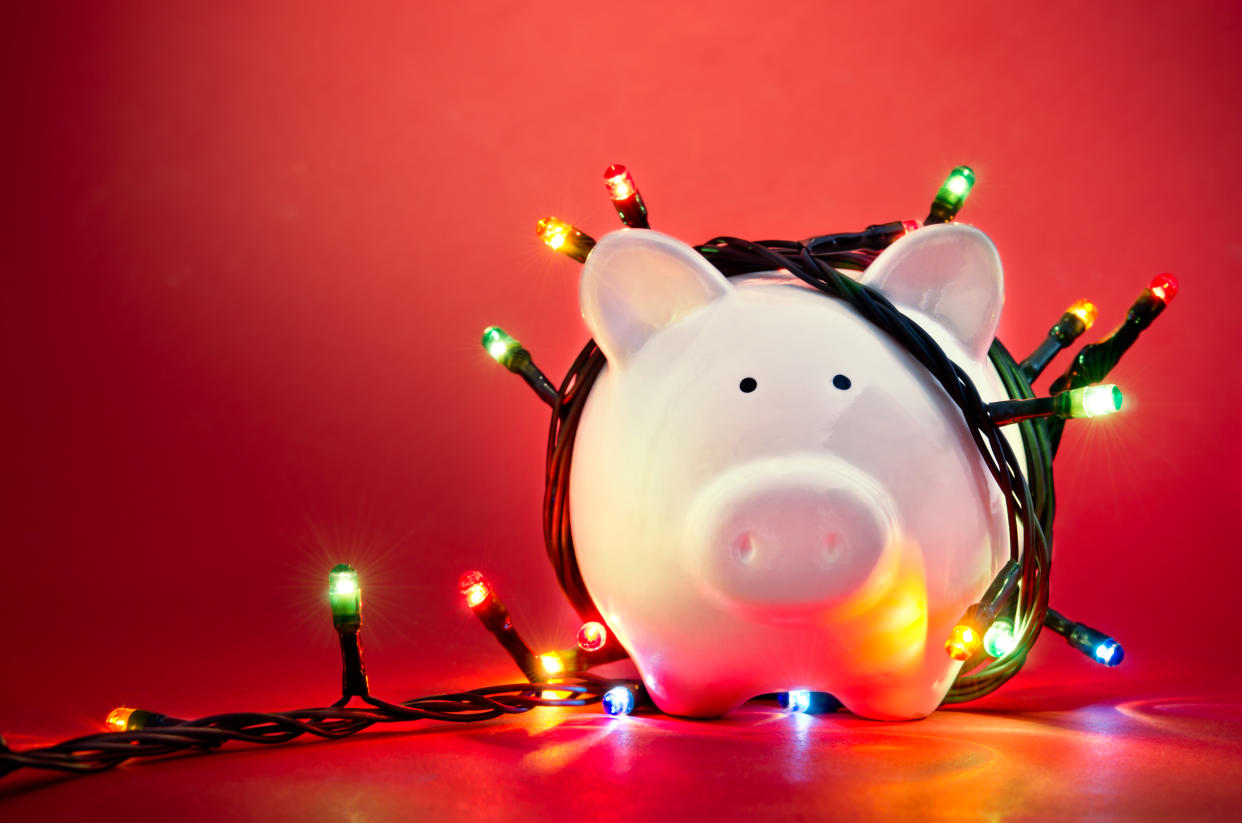How to budget for a Merry Christmas without going broke

The October 31 Brexit deadline is looming. But, more importantly, so is Christmas.
It’s good practice to think properly about your finances.
But it’s even more prudent to prepare when there is talk of recession and economic chaos with the threat of a no-deal Brexit hanging over everyone’s heads.
Christmas is a time for peace, love, and excessive spending. We love to splash out on food, booze, and presents even if it leaves us skint right at the start of the new year.
According to the Bank of England, households spend on average £2,000 a month. In December, that rises to £2,500 amid the festivities.
But it doesn’t have to be that way. With a little thought and planning, you can still have the merriest of Christmases without going broke. Here’s how.
Set a strict and detailed budget
Sit down and think about what is the most you can afford to spend this Christmas. This should be your total budget for absolutely everything—the food, presents, work parties, and all the rest.
Then break down exactly how much you have to spend on each item. List everyone you plan to give a present, and set an individual budget for each.
Give yourself a budget for Christmas lunch and other essential spending over the holiday period, all broken down so you can see exactly where your money will go.
Now stick to it. It’s easy to set a budget, harder to live up to. But be disciplined—it’ll pay off.
Don’t leave your shopping until the last minute
If you rush all your shopping right at the last minute before Christmas, you’ll pay top whack for most of what you want—if you can even find it on the ransacked shelves.
Instead, pick up items as they come up on offer in the months before Christmas and keep them stored away until the big day.
That way, you’ll never miss a bargain, be it on food, drink, or presents, and your bank account will thank you. Why pay full price in December when you could pay half price in September?
Another good tip is to buy all your Christmas bits in January. Things like decorations and crackers crash in price right after Christmas as shops clear out their old stock.
Just put them in the loft and forget about them for a year.
Make gifts where possible
Personalised handmade gifts are a great way to get the most out of a gift when trying to save money.
Presents made with love are worth more than any old overpriced material junk.
There are tonnes of crafty ideas online, but here are a couple worth considering.
You could make a collage of memories, such as photos, keepsakes, and souvenirs, and put them in a hand-decorated box.
Or, if you’re handy in the kitchen, you could make hampers of homemade foodstuffs such as jam, pickles, biscuits, cured meats, cakes, and so on. Batch cooking will keep costs down.
Never get into debt—save early, save often
One of the biggest financial mistakes people make at Christmas is to fund it with debt.
In a recent survey, the Money Advice Trust, a personal finance charity, found that 34% of Britons had borrowed or planned to borrow money to pay for Christmas.
One in 20 Britons—or 2.3 million people—had fallen behind on household bills because of Christmas costs.
Don’t give in to the temptation. The risk of causing you and your family financial stress for the following year or more just to pay for a Christmas you can’t afford is not worth it.
You have 12 months to prepare for Christmas. Set a realistic savings goal and put money aside every month into a Christmas fund.
Dip into it only to make savvy purchases for Christmas, such as bargain offers on items you planned to buy anyway and can put away in the meantime.
If the average household spends £500 extra in December on Christmas, putting away £50 a month will more than cover you.

